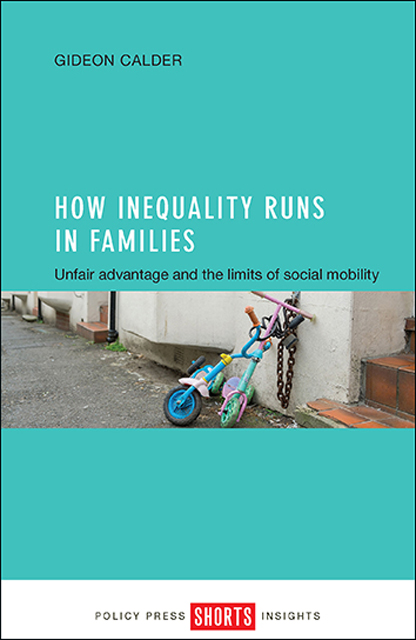Book contents
four - Unpacking equality of opportunity
Published online by Cambridge University Press: 21 April 2023
Summary
Thus privilege, which was to have been exorcised by the gospel of 1789, returns in a new guise, the creature no longer of unequal legal rights thwarting the natural exercise of equal powers of hand and brain, but of unequal powers springing from the exercise of equal rights in a world where property and inherited wealth and the apparatus of class institutions have made opportunities unequal. (Tawney, 1920, p 37)
[I]n the absence of measures which prevent the exploitation of groups in a weak economic position by those in a strong … the phrase equality of opportunity… is the impertinent courtesy of an invitation offered to unwelcome guests, in the certainty that circumstances will prevent them from accepting it. (Tawney, 1964, p 110)
Raymond Williams was quite right to question the ways in which the symbol of the ‘ladder’ gets woven into accounts of social progress. It’s neither an accurate metaphor, nor as progressive as its users like to imply. Let’s think instead about society not with a single scale of social positions, from bottom to top, but as something more multidimensional. We could think along the lines of economic, cultural and social capital. Along each of these lines, people will be ranked in different ways. Some people in their mid-30s – typically, exemplars of intergenerational upward mobility in very highly-paid work – may be top of the scale for economic and social capital, but closer to mid-table in cultural terms. They’ll have more money and social connections than are fully exploitable in a single human life, but will rank lower than others in any hierarchy of the cultural elite. Others – say, graduates of a top university currently claiming jobseeker’s allowance – will be socially networked and culturally omnivorous, but feeling the financial pinch.
Teasing out these three dimensions may suggest that to depict social class we now need three ladders, and three stick-figure versions of each of us, each perhaps differently placed on each ladder. But that doesn’t seem right either. One reason for this is that, though distinct, the three aspects of class are intersectional. Each impinges on the other, in ways that may be different for each of us. As well as being desirable in itself, social capital can get you a ‘good job’.
- Type
- Chapter
- Information
- How Inequality Runs in FamiliesUnfair Advantage and the Limits of Social Mobility, pp. 71 - 98Publisher: Bristol University PressPrint publication year: 2016



